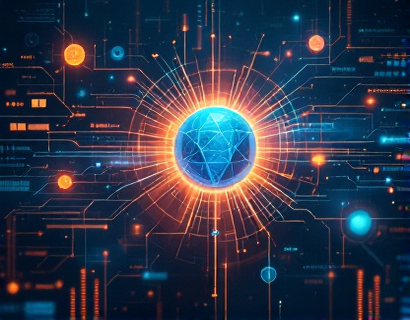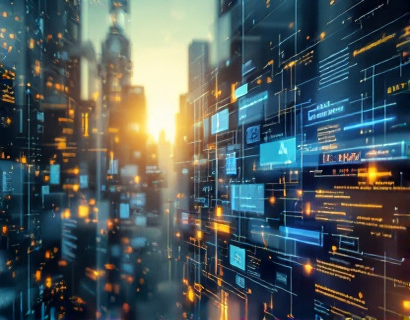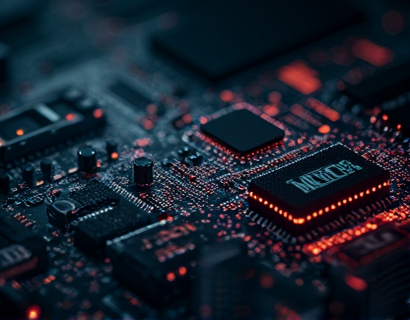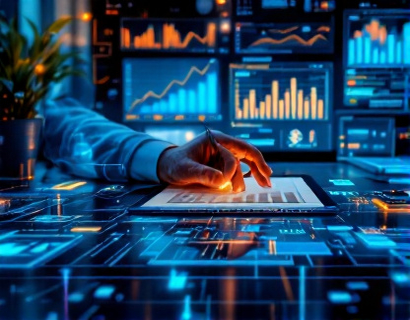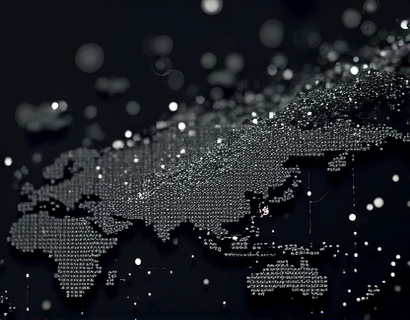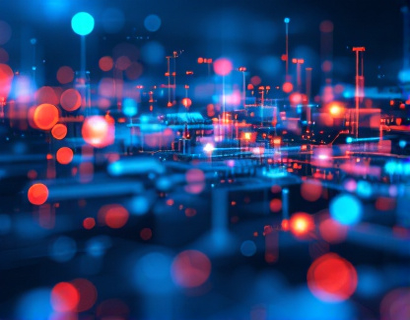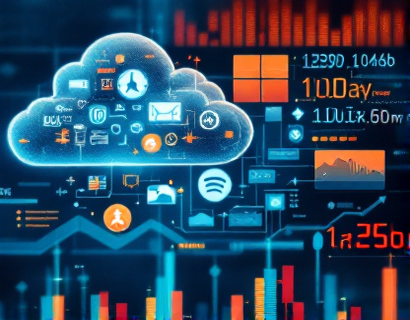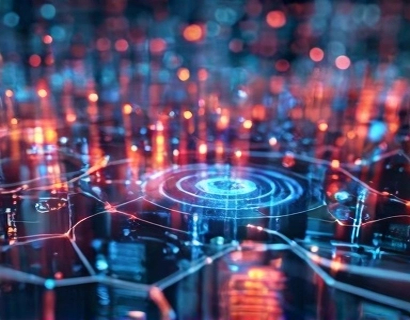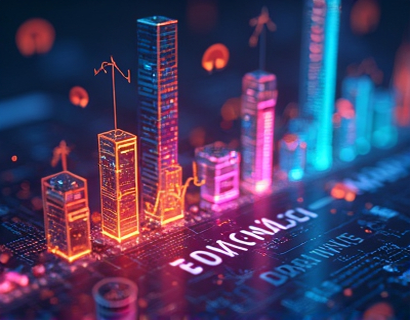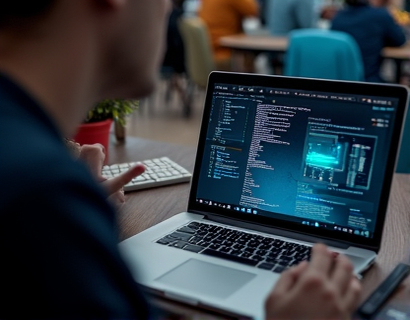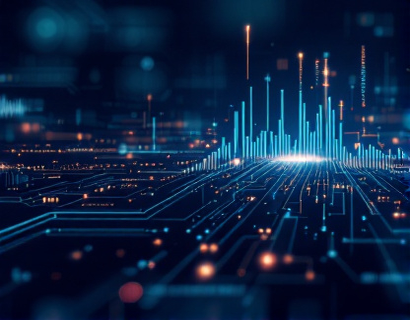Decentralized Productivity: Revolutionizing App Ecosystems with AI and Crypto Integration
The integration of cryptocurrency and artificial intelligence (AI) is ushering in a new era of decentralized productivity, transforming app ecosystems and redefining user experiences. This shift promises to streamline tasks, enhance efficiency, and empower users like never before. As tech enthusiasts and professionals increasingly adopt these technologies, understanding their potential and implications becomes crucial. This article delves into the transformative impact of merging cryptocurrency and AI to revolutionize productivity and user experience, offering insights into the next generation of decentralized app ecosystems.
At the core of this revolution is the decentralized nature of these new app ecosystems. Traditional centralized systems rely on a single authority or entity to manage and control operations, which can lead to bottlenecks, security vulnerabilities, and limited user control. In contrast, decentralized systems distribute control across a network of nodes, ensuring transparency, security, and enhanced user autonomy. This decentralized approach is particularly well-suited for app ecosystems, where multiple applications and services interact and depend on each other.
Cryptocurrency plays a pivotal role in this decentralized framework by serving as a native token or currency within the ecosystem. These tokens facilitate transactions, reward users for contributing value, and provide a means of incentivizing participation. For instance, in a decentralized productivity app, users might earn tokens for completing tasks, sharing resources, or providing valuable insights. These tokens can then be used to access premium features, purchase services from other app users, or even vote on the direction of the ecosystem.
AI, on the other hand, brings intelligence and automation to these decentralized systems. Machine learning algorithms can analyze vast amounts of data to optimize app performance, predict user needs, and automate routine tasks. For example, an AI-driven productivity app can learn a user's work patterns and suggest optimal times for tasks, automate repetitive actions, and provide personalized recommendations to boost efficiency. The combination of AI and decentralization creates a powerful synergy, where intelligent systems operate autonomously and transparently, enhancing the overall user experience.
One of the key benefits of decentralized productivity app ecosystems is the enhanced security they offer. In centralized systems, data is stored in a single location, making it a prime target for hackers. Decentralized systems, however, distribute data across multiple nodes, reducing the risk of a single point of failure. Blockchain technology, the backbone of cryptocurrency, ensures that transactions and data are immutable and tamper-proof. This level of security is particularly important for productivity apps that handle sensitive information such as documents, financial data, and personal communications.
Another significant advantage is the interoperability and seamless integration of different apps and services. In a decentralized ecosystem, apps can communicate and share data directly with each other without the need for intermediaries. This not only speeds up processes but also reduces costs and increases efficiency. For instance, a project management app can seamlessly integrate with a time-tracking app, a document storage service, and a communication platform, all within the same decentralized network. Users can enjoy a cohesive and streamlined experience without the hassle of switching between multiple centralized applications.
The role of AI in enhancing interoperability cannot be overstated. AI algorithms can analyze data from various apps to identify patterns, optimize workflows, and suggest integrations that users might not have considered. For example, AI can detect that a user frequently uses two different apps for task management and note-taking and propose a seamless integration that syncs data automatically. This level of intelligence not only improves user experience but also fosters a more connected and efficient ecosystem.
Decentralized app ecosystems also promote innovation and community-driven development. Unlike traditional centralized models where a single entity controls the app's direction, decentralized ecosystems allow developers and users to contribute to the app's evolution. Smart contracts, self-executing contracts with the terms directly written into code, enable automated and trustless interactions. Developers can create and deploy new features or even entirely new apps within the ecosystem, knowing that the rules and incentives are transparent and enforceable.
This community-driven approach leads to a more diverse and robust app ecosystem. Users have a say in the development process, ensuring that the apps meet their actual needs and preferences. Moreover, the token-based incentive structure motivates developers to create high-quality, useful applications, as they can benefit directly from the ecosystem's success. This alignment of interests between developers and users fosters a vibrant and dynamic environment where innovation thrives.
Let's explore some specific use cases to illustrate the potential of decentralized productivity app ecosystems. Consider a decentralized collaboration platform where teams can work on projects without relying on centralized servers. Each team member contributes to the project, and their efforts are rewarded with tokens. AI algorithms manage task assignments, track progress, and ensure that the project stays on schedule. The platform uses blockchain to securely store and verify the ownership and version history of documents, preventing unauthorized alterations and ensuring accountability.
Another example is a decentralized financial planning app that integrates with various financial services. Users can link their bank accounts, investment portfolios, and other financial assets within the app. AI analyzes this data to provide personalized financial advice, automate savings, and optimize investment strategies. The app uses cryptocurrency to facilitate transactions and reward users for achieving financial milestones. All financial data is stored securely on the blockchain, giving users full control and transparency over their financial information.
The integration of AI and cryptocurrency in these apps not only enhances functionality but also empowers users with greater control and security. Users can trust that their data is protected and that the system operates fairly and transparently. This trust is crucial for widespread adoption and the long-term success of decentralized app ecosystems.
However, the path to widespread adoption is not without challenges. One of the primary hurdles is user education. Many potential users are still unfamiliar with blockchain technology and cryptocurrencies, which can create a barrier to entry. To overcome this, platforms like the one described must focus on user-friendly interfaces and comprehensive educational resources. Simplifying the onboarding process and providing clear explanations of how the technology works can help demystify these concepts and encourage more users to join the ecosystem.
Another challenge is scalability. As the number of users and transactions grows, ensuring that the decentralized network remains efficient and responsive is critical. This requires continuous optimization of blockchain protocols and the development of layer 2 solutions that can handle higher transaction volumes without compromising security. AI can play a role here by predicting and managing network load, optimizing resource allocation, and identifying bottlenecks before they become issues.
Privacy is another concern that must be addressed. While blockchain offers transparency, it can also expose sensitive information if not properly managed. Implementing advanced encryption techniques and zero-knowledge proofs can help maintain user privacy while still benefiting from the transparency of the blockchain. AI can assist in monitoring and enforcing privacy protocols, ensuring that user data is handled responsibly and in compliance with regulations.
Looking ahead, the future of decentralized productivity app ecosystems is promising. As more developers and businesses recognize the potential of this approach, we can expect to see a proliferation of innovative applications that leverage the strengths of both AI and cryptocurrency. The integration of other emerging technologies, such as the Internet of Things (IoT) and 5G, will further enhance the capabilities of these ecosystems, making them even more powerful and versatile.
In conclusion, the convergence of cryptocurrency and AI is revolutionizing app ecosystems, offering a decentralized, secure, and intelligent alternative to traditional centralized models. By enhancing security, interoperability, and user control, these ecosystems are poised to transform productivity and user experience. As tech enthusiasts and professionals continue to explore and adopt these technologies, the next generation of decentralized apps will unlock new possibilities and drive the digital landscape forward.





